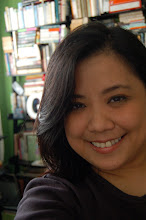 Let's do a Covey and start with the end in sight. (Yes, I know that is a paraphrase.) This has got to be the most frustratingly perplexing ending I've ever had the displeasure of reading, and not in an I-am-so-intrigued-and-delightfully-mystified-I’ve-got-to-buy-the-sequel kind of way, but in a head-scratching, what-the-fafaya-was-that-all-about way.
Let's do a Covey and start with the end in sight. (Yes, I know that is a paraphrase.) This has got to be the most frustratingly perplexing ending I've ever had the displeasure of reading, and not in an I-am-so-intrigued-and-delightfully-mystified-I’ve-got-to-buy-the-sequel kind of way, but in a head-scratching, what-the-fafaya-was-that-all-about way.
The start and the middle were not all that satisfying either. According to Wikipedia, Bellow’s style tends to be brooding, and this particular novel is a broodfestmania.
It is set in late 70s Bucharest. Post-earthquake, communist-ruled, dictator-led, impoverished Rumania. Not exactly party central. Dean Albert Corde is there to accompany his wife to deal with the impending death of her mother. He spends a lot of time sitting in his wife's childhood bedroom. Ruminating. A whole lot of ruminating. I guess there’s nothing else to do. His mind travels back and forth between Bucharest and Chicago. In Chicago, he has suddenly become a social and academic pariah because of a controversial article he wrote. He replays the events in his mind and contemplates his past motivations and his inclinations for the future. In Bucharest, he encounters the workings of a totalitarian regime and he criticizes and scrutinizes . All in his mind. He doesn’t really do anything much with his thoughts. In Bucharest, he doesn’t do anything to resolve his righteous anger and defy the authorities. Back in Chicago, he doesn’t even put up a fight for his post.
Though the narration is by a third person, the perspective is that of Dean Corde. And because Corde mostly just sits and ruminates, the plot moves at an excruciating crawl. Each progression of event is merely used as a jumping point to recall and reflect on past events. Yes, more brooding. If you delete all his introspection and retain only the narrative, you would be left with a very thin book.
Once in a while, he turns his attention to the cyclamens in bloom, seeing them as symbols for his state of mind and life. But the symbolic meanings can get too obtuse for the non-horticulturist reader.
Is it all that bad? When I managed to keep myself awake, I did spot some good writing, good turns of words and phrases. I liked his descriptives. Probably the most entertaining parts of the book. More like commentaries really.
“This heavy woman, and pale, eyes large and dark - - she was as intelligent as she was stout. Her hair, parted evenly down the center in two symmetrical waves, suggested that the fundamental method of her character was to balance everything out, and that she kept a mysterious, ingenious equilibrium, her fat figure and her balanced thoughts being counterparts. “
Also entertaining are some of the little stories Dean Corde encounters as a journalist. His fictional accounts of a ghastly rape, of rats and corpses in the trenches, are so dark; I think to myself, “How can Bellows think up fiction this vile?”
Mildly amusing is his nightmarish experience at the crematorium. He sweats through his coat in the middle of a harshly cold winter.
Bellows won the Nobel Peace Prize for Literature years before he wrote The Dean’s December. And his writing showcases (shows off?) his intellectual chops. This is a book that cannot be read in isolation or ignorance of other books. Bellow litters the novel with allusions to other literary works, historical events, and philosophical ideas that the author assumes his reader knows. Huh! He didn't account for some fluffhead like me reading this.
I would still like to give Bellows another chance if I find another one of his books. Hopefully, pre-Nobel, and not something as slow, introspective, and repetitious as this.
Wednesday, January 21, 2009
THE DEAN'S DECEMBER by Saul Bellow
Posted by
gege
at
3:26 PM
![]()
Labels: my book lust
Subscribe to:
Post Comments (Atom)












0 comments:
Post a Comment